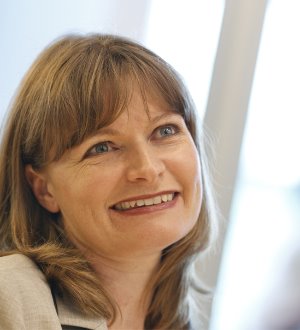Meridian Lawyers often receives calls from doctors and other health practitioners requesting one-off advice relating to their day-to-day practice. One common and enduring theme of these requests for advice is death certificates – who can prepare them, and when? For example, if a patient dies in an aged care home, can a locum doctor certify the death in the absence of the patient’s regular GP?
In this Health Insight we summarise the key legal obligations for medical practitioners completing death certificates, and explore two hypothetical scenarios to demonstrate how the requirements operate in real life.
What are the legal requirements for completing a death certificate?
In Victoria under the Births, Deaths and Marriages Registration Act 1996 (Vic), a doctor must notify a death within 48 hours after it has occurred if he or she:
- was responsible for the deceased person’s medical care immediately before death; or
- examined the body of the deceased person after death.[1]
To notify a death and prepare a Medical Certificate of Cause of Death (MCCD) the relevant doctor must have enough information to be ‘comfortably satisfied’ as to the cause of death.
Provided these requirements are satisfied, and no circumstances exist which would require the doctor to report the death under the Coroners Act 2008 (Vic), the doctor can complete a MCCD online via the Births, Deaths and Marriages website.
A doctor must not complete a MCCD if the death of the person is a ‘reportable death’ for the purposes of the Coroners Act 2008 (Vic). A ‘reportable death’ is defined as being:
- a violent, unnatural or unexpected death
- a death resulting from an accident or injury
- a death where the person’s identity is not known
- a death where the cause of death is not known
- healthcare-related deaths (being a death that occurs either during a medical procedure or following a medical procedure where the death is or may be causally related to the medical procedure, and a registered medical practitioner would not, immediately before the procedure was undertaken, have reasonably expected the death)
- a death where a death notice was not signed and is not likely to be signed
- deaths in care or custody.[2]
To be a ‘reportable death’ under the Coroners Act 2008 (Vic), the death must also be connected with the State of Victoria.[3]
Case scenarios
The following hypotheticals demonstrate the legal obligations pertaining to MCCDs and are based on real-life requests for advice that were raised with Meridian Lawyers.
1. General Practitioner A was notified by the family of a patient of the practice that the patient had passed away. General Practitioner A was not the patient’s regular doctor. The patient’s regular doctor, General Practitioner B, worked at the same practice, but was away at the time and not contactable. Based on General Practitioner A’s review of the patient’s clinical records, it was apparent that the patient was elderly and suffering a terminal condition. Can General Practitioner A sign the MCCD?
Yes, provided General Practitioner A examines the body of the deceased patient before preparing the MCCD and is ‘comfortably satisfied’ as to cause of death.
General Practitioner A was not responsible for the patient’s medical care immediately before death. In order to satisfy the legal requirements for preparing the MCCD, the General Practitioner A must therefore examine the body of the deceased patient after death.
The clinical records can inform General Practitioner A in his or her assessment of the deceased patient, to enable him or her to be ‘comfortably satisfied’ as to cause of death for the purposes of completing the MCCD.
2. An elderly patient attended hospital for elective admission during which an assessment was requested by the surgical doctor. The assessment commenced, but the patient suddenly declined and died. He/she had not yet been fully transferred to the surgical doctor’s care, but the surgical doctor was able to form an opinion regarding cause of death. Can the surgical doctor prepare and sign the MCCD?
Yes.
The surgical doctor was not responsible for the patient’s medical care immediately before death, because the patient had not yet been fully transferred to him or her, however, the surgical doctor was present at the death of the patient and therefore able to examine the body of the patient after death. He or she was also able to form an opinion as to the cause of death, such that he or she could be ‘comfortably satisfied’ as to cause of death for the purposes of completing the MCCD.
For completeness, although the death occurred in hospital, no medical procedure had taken place before the patient died which means that the death is not a ‘reportable death’ for the purposes of section 4(2)(b) of the Coroners Act 2008 (Vic).
This article was written by Principal Kellie Dell’Oro and Associate Anna Martin. Please contact us if you have any questions or require further information.
Disclaimer: This information is current as of October 2020. This article does not constitute legal advice and does not give rise to any solicitor/client relationship between Meridian Lawyers and the reader. Professional legal advice should be sought before acting or relying upon the content of this article.
[1] Births, Deaths and Marriages Act 1997 (Vic), section 37.
[2] Coroners Act 2008 (VIC), section 4.
[3] As required under section 4(1) of the Coroners Act 2008 (Vic).
















